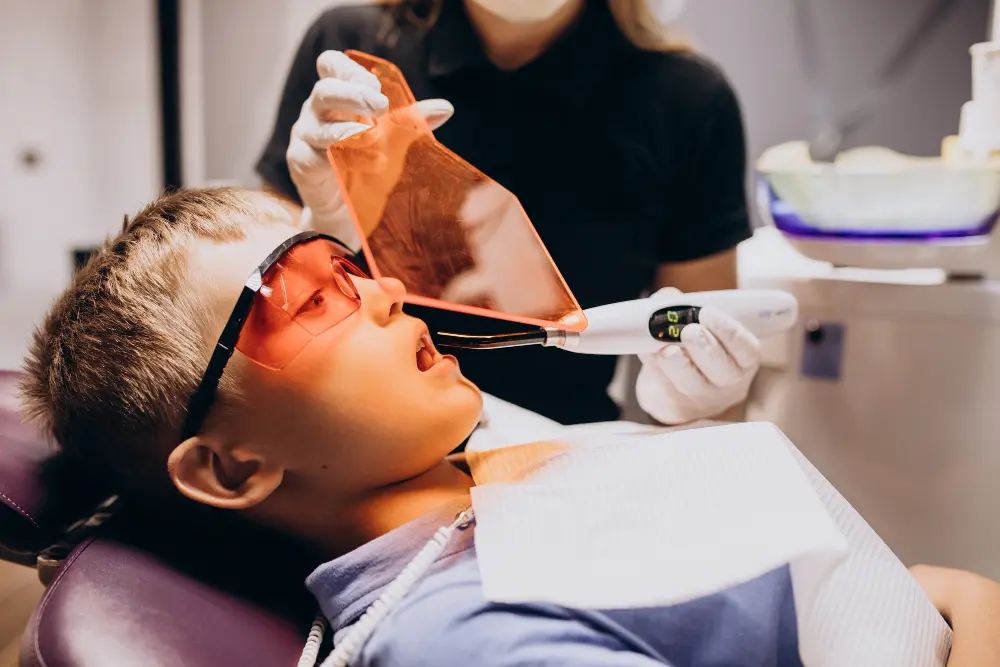For many people, a trip to the dentist can be a source of anxiety. The sights, sounds, and smells of a dental office can trigger feelings of nervousness and apprehension. But what if there was a way to experience dental care in a state of complete relaxation and comfort? Sedation dentistry offers a solution for patients who experience dental anxiety. It uses medication to help patients achieve a calm and comfortable state during their dental procedures. This can be a great option for a variety of procedures, including cleanings, fillings, and even more complex surgeries.
Types of Sedation Dentistry
There are different types of it available, each with varying levels of intensity:
- Nitrous Oxide Sedation (Laughing Gas): This mild sedative is inhaled through a mask. It helps patients feel relaxed and carefree while remaining conscious and able to respond to the dentist’s instructions. It’s a good option for those with mild anxiety or for shorter procedures.
- Oral Sedation: Patients take medication orally before their appointment, inducing drowsiness and reducing anxiety. This is a good choice for patients with moderate anxiety or those who dislike needles.
- Intravenous (IV) Sedation: A sedative is administered through a vein in the arm. This provides a deeper level of relaxation and may even cause amnesia (forgetting the procedure details). It’s suitable for patients with severe anxiety or those undergoing complex procedures.

Benefits of Sedation Dentistry
Sedation dentistry offers numerous advantages for patients:
- Reduced Anxiety: The primary benefit is the significant reduction of dental anxiety, making dental care a more positive experience.
- Pain-Free Procedures: While some discomfort might still occur, sedation dentistry significantly reduces pain perception.
- Comfort and Relaxation: Patients achieve a state of deep relaxation, making the dental experience more comfortable and tolerable.
- Improved Treatment Outcomes: When patients are relaxed, dentists can perform procedures more efficiently and effectively, potentially reducing the number of appointments needed.
Who Can Benefit from Sedation Dentistry?
It is a great option for a variety of patients, including those with:
- Dental Anxiety or Phobia: If the thought of the dentist fills you with dread, sedation dentistry can help you overcome your fear and receive the dental care you need.
- Low Pain Tolerance: If you have a low pain tolerance, It can help you manage discomfort during procedures.
- Strong Gag Reflex: A strong gag reflex can make dental procedures difficult. It can help to relax the gag reflex and make the experience more tolerable.
- Extensive Dental Work: If you require multiple or complex procedures, it can help you get through the process more comfortably.
Considering Sedation Dentistry? Talk to Your Dentist!
If you experience dental anxiety or any of the conditions listed above, sedation dentistry may be a good option for you. Discuss your concerns with your dentist. They can assess your needs and recommend the most appropriate type of sedation for your situation. With it, you can finally achieve a stress-free and comfortable dental experience.
FAQs
Q: Is sedation dentistry safe?
It is a safe and effective procedure when performed by a qualified dentist. However, as with any medical procedure, there are some risks involved. Your dentist will discuss these risks with you before you decide if it is right for you.
Q: Will I be completely unconscious during sedation dentistry?
It depends on the type of sedation used. Nitrous oxide and oral sedation typically leave you conscious but relaxed. Intravenous sedation may cause drowsiness or even amnesia.
Q: What are the side effects of sedation dentistry?
Common side effects can include drowsiness, dizziness, nausea, and headache. These side effects are usually mild and temporary.
Q: Will I be able to drive myself home after sedation dentistry?
No. In most cases, you will need someone to drive you home after it because the medication can impair your coordination and judgment.
Q: How much does sedation dentistry cost?
The cost of it varies depending on the type of sedation used, the length of the procedure, and the dentist’s fees. Be sure to discuss the cost with your dentist before your appointment.
